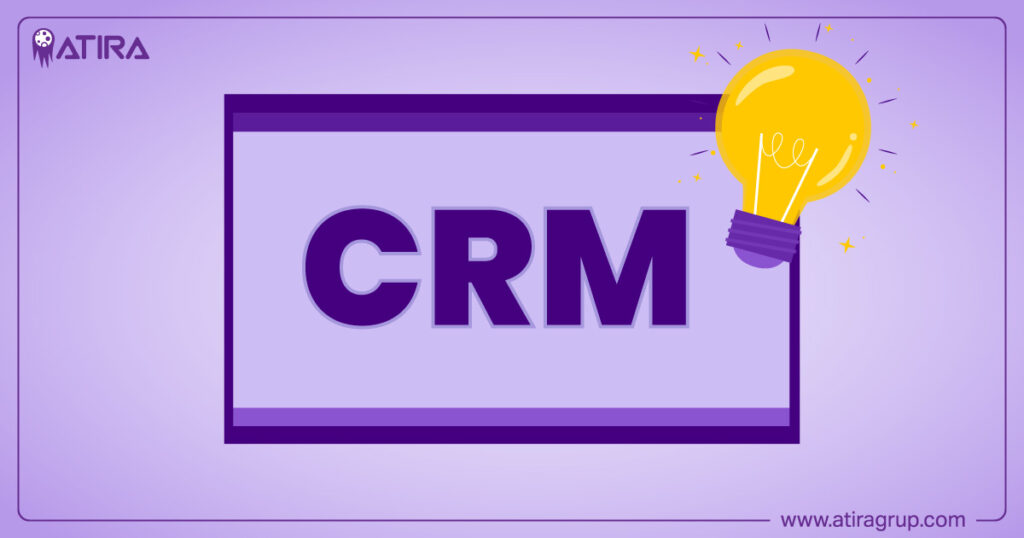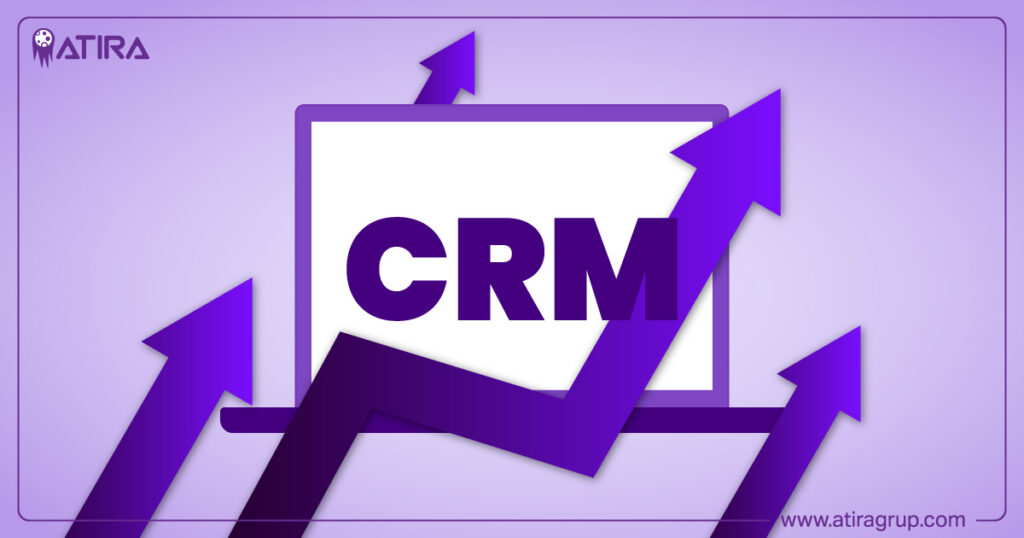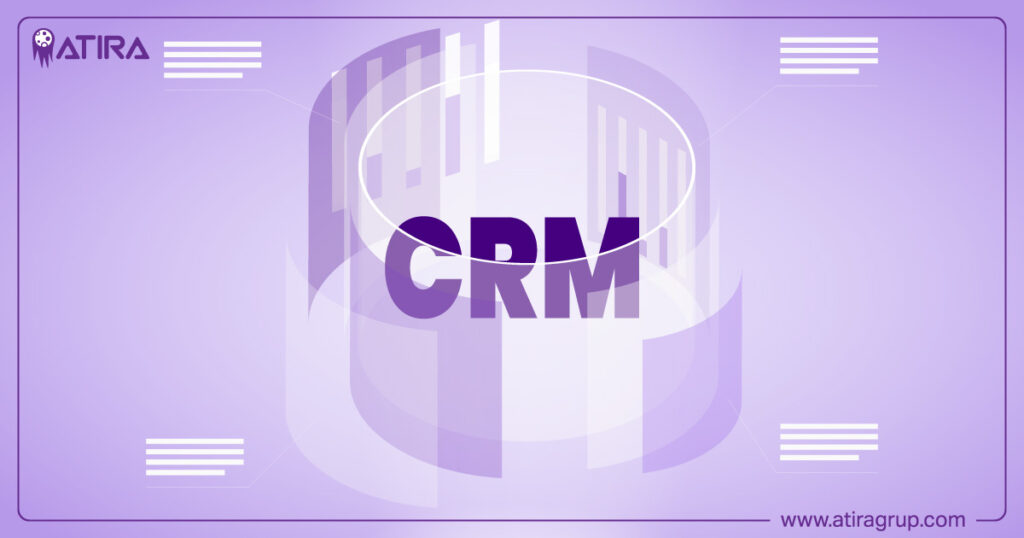Searching for the best CRM business-to-business solutions? This guide simplifies your search by showcasing the top 10 B2B CRM systems for 2025. Learn why B2B CRM is critical for managing complex client relationships and discover the features and benefits that make these solutions stand out. Get ready to enhance your B2B operations with the right CRM.
Key Takeaways
- B2B CRMs streamline operations by centralizing customer data, enhancing decision-making, and optimizing sales processes.
- Implementing B2B CRM systems empowers businesses to automate repetitive tasks, manage leads efficiently, and enhance customer communication.
- As AI integration continues to evolve, leveraging B2B CRM systems can provide tailored insights, driving growth and improving customer satisfaction.
Table of Contents
Understanding B2B CRM
Customer relationship management (CRM) systems are the backbone of modern business operations, especially in the B2B sector. A B2B CRM is specifically designed to manage interactions with business customers, optimizing processes and driving efficiency. Unlike B2C CRMs, which focus on individual consumer relationships, B2B CRM systems are tailored to handle the complexities of business clients and their unique requirements.

The primary function of a B2B CRM is to organize and consolidate customer data from various touchpoints, providing a holistic view of customer interactions. This centralization enables businesses to track and measure the entire sales cycle, from lead generation to deal closure, ensuring no opportunity is overlooked. Automation of sales processes and insightful data from B2B CRMs help sales teams make informed decisions and collaborate more effectively on deals.
Moreover, B2B CRM systems help monitor marketing outcomes, offering valuable insights into lead sources and campaign performance. This capability allows businesses to refine their strategies and enhance customer engagement, ultimately driving better business relationships and growth.
Importance of B2B CRM for Business Growth
In today’s competitive market, the importance of B2B CRM systems for business growth cannot be overstated. These systems streamline the management of complex relationships and enhance communication, leading to improved efficiency and productivity across the board. Centralizing client information with B2B CRMs ensures consistent client engagement, maintaining strong business relationships.

CRM tools enhance customer relationships and drive sales efficiency by offering built-in reports and analytics. These insights help businesses identify bottlenecks and areas for improvement in their sales processes. These insights allow companies to make data-driven decisions and build better sales strategies, ultimately contributing to revenue growth.
Furthermore, B2B CRM systems track prospect drop-offs and conversion rates, offering valuable insights into customer behavior. This information enables businesses to refine their marketing efforts and lead generation strategies, ensuring they target the right prospects at the right time. For businesses seeking to drive revenue growth, investing in a robust B2B CRM is a strategic move that can yield significant returns.
Key Features of Effective B2B CRM Software
Effective B2B CRM software is characterized by several key features that enhance customer relationship management and streamline business operations. One of the most critical features is the consolidation of customer data, which provides a centralized view of all customer interactions. This centralization allows businesses to track and analyze customer behavior, leading to more informed decision-making and personalized customer engagement.

Contact management is another vital feature, enabling businesses to keep all customer details organized in a single location. This includes names, positions, and communication history, which are essential for maintaining consistent and meaningful customer interactions. Additionally, AI features within B2B CRMs can analyze customer data and predict their needs, automating responses and suggesting next steps to enhance customer engagement.
Visual sales pipelines and customizable dashboards are also crucial components of effective B2B CRM software. These tools provide visual insights into performance metrics, making it easier for sales teams to track relevant data and monitor the progress of deals through various stages of the sales cycle. By leveraging these features, businesses can optimize their sales processes and improve overall efficiency.
Benefits of Implementing B2B CRM Systems
Implementing a B2B CRM system offers numerous benefits that can significantly enhance business operations and customer relationships. These systems assist businesses in analyzing customer data, providing valuable insights that help understand client needs and improve strategic decision-making. AI-powered marketing automation enables businesses to create hyper-personalized customer experiences, boosting engagement and satisfaction among B2B clients.
B2B CRM systems also monitor sales progress, nurture prospects, and build strong customer relationships. The following subsections will delve into specific benefits such as automating repetitive tasks, managing leads efficiently, and enhancing customer communication.
Automating Repetitive Tasks
Automating repetitive tasks is one of the significant advantages of implementing a B2B CRM system. Marketing automation and workflow automation can significantly increase operational efficiency and reduce errors by automating various marketing, sales, and service processes. Tasks such as data entry, follow-ups, and setting reminders can be automated, allowing sales teams to focus on more strategic activities.
HubSpot CRM, for instance, automates manual tasks such as rotating leads and creating tasks, enhancing overall team efficiency. Reducing human error and freeing up valuable time improves productivity and ensures more consistent and timely customer interactions.
Managing Leads Efficiently
Efficient lead management is crucial for driving sales growth, and B2B CRM systems excel in this area. These systems automatically capture leads from various channels such as web forms, social media, and email, assigning scores based on predefined criteria to manage leads effectively. This automation streamlines the lead collection process and ensures that no potential opportunity is missed.
Lead scoring is a particularly valuable feature, enabling sales teams to prioritize leads based on their likelihood of conversion. Visualizing and analyzing each step of the customer journey through sales funnel management allows businesses to track deal progress and identify potential challenges. This comprehensive visibility into the sales pipeline helps improve sales strategies, increase conversion rates, and streamline the sales process.
Enhancing Customer Communication
Enhancing customer communication is another critical benefit of B2B CRM systems. Centralized client data ensures consistency in customer engagement, allowing sales teams to have contextual conversations and informed pitches. With all relevant customer communications stored in one place, teams can collaborate more effectively and provide a seamless customer experience.
Identifying gaps in communication and improving customer experiences with B2B CRMs strengthens client engagement. This enhanced collaboration among sales, marketing, and customer service teams leads to more effective customer interactions and stronger business relationships.
Top 10 B2B CRM Solutions for 2025
As we look towards 2025, several B2B CRM solutions stand out for their innovative features and capabilities. The following list reviews the top 10 CRM tools available, providing insights into their strengths and potential drawbacks to help you choose the right CRM software for your business.

Creatio
Creatio is recognized for its customizable and no-code adaptability, making it suitable for scalable business operations. This platform allows businesses to set up and modify their CRM processes without requiring technical support, providing the flexibility to adapt to changing needs.
Creatio also offers insightful reports that help B2B teams analyze their campaign performance and track sales goals. Its automated personalized email sequences enhance lead engagement and help capture prospects’ attention, making it a robust tool for managing customer relationships effectively.
Salesforce
Salesforce is a comprehensive cloud-based CRM solution that integrates various functionalities tailored to business needs. Its Customer 360 features provide a holistic view of customer data, allowing businesses to understand customer interactions across multiple channels.
These integrated features facilitate seamless customer journey management by ensuring consistent customer experiences and personalized engagement. Salesforce helps businesses enhance customer satisfaction and drive loyalty through efficient data management and communication strategies.
HubSpot
HubSpot CRM is designed for sales leaders and marketers of B2B organizations. Its user-friendly interface and powerful marketing tools make it an ideal choice for businesses looking to enhance their customer relationships and drive engagement.
Zendesk
Zendesk is known for enhancing customer service efficiency through effective lead management tools. This CRM solution is particularly valuable for businesses that prioritize customer service, as it helps foster strong relationships and promptly resolve client issues.
Zoho
Zoho CRM is a cloud-based solution that provides businesses with flexibility, scalability, and the ability to manage customer relationships from anywhere. Its robust integrations and analytics capabilities allow businesses to streamline processes and improve sales performance.
By offering advanced analytics and insights, Zoho helps businesses optimize their sales strategies effectively. This combination of features makes Zoho a versatile and powerful tool for managing customer relationships in the B2B space.
Pegasystems
Pegasystems features real-time decision-making capabilities, which are essential for managing complex B2B processes. Its low-code features enable businesses to easily adapt the CRM system to their specific needs, making it a flexible and powerful solution.
This platform is particularly well-suited for large enterprises facing complex processes, as it combines real-time decision-making with low-code adaptability to enhance business operations.
Oracle
Oracle’s CRM solutions stand out for their AI-driven insights and advanced analytics capabilities, which enhance decision-making processes in B2B environments. By leveraging machine learning algorithms, Oracle helps businesses identify customer behaviors and trends, allowing them to tailor their strategies effectively.
Additionally, Oracle provides industry-specific functionalities that streamline operations across various sectors such as finance, healthcare, and manufacturing. This focus on specific verticals ensures that businesses have the right tools to meet their unique challenges, driving relevant engagement and supporting strategic goals.
Microsoft Dynamics 365
Microsoft Dynamics 365 seamlessly integrates CRM and ERP capabilities, providing a holistic view of customer interactions and business processes. This integration allows businesses to access real-time data, facilitating informed decision-making to enhance customer relationships.
Combining CRM and ERP functions, Microsoft Dynamics 365 streamlines operations, reduces data duplication, and enhances collaboration across departments. The insights gained from integrated systems lead to personalized customer experiences, improving satisfaction and loyalty, ultimately benefiting organizations through increased efficiency and growth opportunities.
Freshworks
Freshworks CRM is known for its user-friendly interface and 360° view of customers, which enhances understanding and interaction. This comprehensive view allows businesses to tailor their services and communications for improved customer engagement.
By utilizing Freshworks CRM, companies can significantly improve their customer relationship management and overall engagement strategies. Freshworks CRM is particularly effective for businesses aiming to enhance their customer journey and experience through improved communication and interaction.
Pipedrive
Pipedrive is designed specifically for small and medium-sized businesses, enabling intuitive sales pipeline management. It provides users with a smart overview of their sales opportunities, empowering sales reps to focus on crucial deals and improve overall sales performance.
Pipedrive automates data sourcing by gathering contact data from emails and social profiles, helping users manage their meetings effectively by logging interactions with contacts. This automation ensures that sales teams can concentrate on what matters most: closing deals and building strong customer relationships.
Choosing the Right B2B CRM for Your Business
Choosing the right B2B CRM for your business involves understanding your specific goals and challenges. As businesses expand, selecting a CRM that can scale to accommodate larger data volumes and increasingly complex organizational structures is crucial. A scalable CRM ensures that performance remains seamless as your business grows.

Integration with other business tools is another crucial factor to consider. A CRM that integrates with your existing systems enhances operational efficiency and data consistency. Customization options enable businesses to tailor the CRM to fit their workflows, leading to better user adoption and satisfaction.
Budget considerations should include not only the software cost but also implementation and training expenses. Evaluating the vendor’s experience in your industry can lead to better-tailored solutions. Thorough research, including reading reviews and testing through demos or trials, helps identify the best CRM options for your business.
Future Trends in B2B CRM
As we look to the future, AI is becoming an integral part of B2B CRM systems, driving innovation and improving operational efficiency. Oracle’s CRM powered by AI provides actionable insights tailored to specific industries, helping businesses make informed decisions that align closely with industry demands.

These AI-driven insights enhance customer experience by delivering more personalized interactions and service. Analyzing past sales data and customer interactions with AI helps businesses predict future trends and customer needs, enabling more targeted campaigns and better resource allocation.
Overall, the integration of AI in CRM systems is set to revolutionize how businesses manage customer relationships, driving growth and improving customer satisfaction. Staying ahead of these trends will be crucial for businesses looking to maintain a competitive edge in the B2B market.
Summary
In summary, B2B CRM systems play a vital role in managing customer relationships and driving business growth. By consolidating customer data, automating tasks, and providing valuable insights, these systems enhance efficiency and improve customer engagement. The top 10 CRM solutions for 2025, including Creatio, Salesforce, HubSpot, and others, offer a range of features to meet the diverse needs of B2B businesses.
Choosing the right CRM involves understanding your business goals, ensuring scalability, and considering integration and customization options. As AI continues to shape the future of CRM systems, businesses must stay ahead of these trends to maintain a competitive edge. Embracing the right B2B CRM solution can transform your business operations and lead to lasting success.
Read also:
The Best CRM System for Real Estate
Frequently Asked Questions
What is the primary function of a B2B CRM system?
The primary function of a B2B CRM system is to streamline customer data management and automate sales processes, empowering your business to effectively track and optimize the entire sales cycle. Embrace this tool to drive your success and enhance customer relationships!
How does a B2B CRM enhance customer communication?
A B2B CRM significantly boosts customer communication by centralizing client data, which allows for consistent engagement and empowered sales teams to have informed and contextual conversations. Embrace this tool to elevate your customer interactions and relationships!
What are some key features to look for in effective B2B CRM software?
To ensure you choose the right B2B CRM software, focus on features like customer data consolidation, contact management, AI capabilities, visual sales pipelines, and customizable dashboards. These elements will empower your team to enhance relationships and drive growth!
Why is lead scoring important in B2B CRMs?
Lead scoring is crucial in B2B CRMs as it allows sales teams to prioritize the best leads, ultimately enhancing conversion rates and driving business growth. By focusing on high-potential opportunities, you set your team up for success!
How can businesses choose the right B2B CRM software?
To choose the right B2B CRM software, clearly define your goals and challenges, prioritize scalability and integration, and assess customization options along with vendor reputation. Doing so will empower your business to thrive and serve your clients better!


